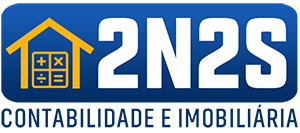The average pay scale for IT solutions architects varies widely and is influenced by numerous factors. For instance, a professional with the same qualifications in the US earn between $142K and $238K per year. Additionally, the remuneration is determined by the number of years of experience, technical proficiency, level of seniority, and soft skills.
- It’s worth mentioning that these official confirmations expire, and thus, the exams must be retaken every few years or so.
- Usually, a product has a number of stakeholders that are both technical and non-technical specialists.
- Even the most sophisticated software product is worth investing in only if it can bring real business value.
- One of the Solutions Architects’ key responsibilities is to oversee solutions’ implementation and integration.
A solution architect accounts for developing a complete architecture for a software solution and offering strategic direction all through the development phase. As this change is quite complicated, every brand seeks an expert holding the required skillset and proficiency in balancing the business requirements with distinct modifications of technology solutions. Or we can say, as per the time’s demand, businesses need to run the digital transformation of their primary operations of transferring solution architect performance goals core processes to software solutions efficiently. We highly recommend you turn to a trusted outsourcing vendor with years of experience hiring software development professionals. In addition, you can channel all your energy into your business needs, and your vendor will take care of the recruitment process and will offer you the best specialists to choose from. It’s a well-recognized set of qualifications that consists of 5 different levels to fit different experiences and seniority levels.
What Are the Essential Skills of a Solutions Architect?
This sphere encompasses a whole variety of production endeavors – from food and drink to machines and pharmaceuticals. Solution architects are involved in streamlining the products’ lifecycles and supporting seamless manufacturing operations by providing constant availability of relevant software. In simple words, they are experts who evaluate the problems of their customers, and then they go ahead and create an actionable plan for resolving the issues found by using technology. There are a lot of IT architect certifications available, with most of them being vendor-specific, i.e., focused on mastering a specific technology.
These professionals can help to prepare a work plan, so that the solution they have suggested aligns with the business’ goals, and they can ensure that a project is completed on time and within budget. A well-thought-out architecture can help teams to develop a high-quality product on time and within budget. That is why a Solutions Architect is irreplaceable when working on any complex project. Each of these terms includes multiple aspects that we’ll discuss in the article. If you want to catch all details quickly, check out our video about a solution architect role.
Responsibilities Of Solution Architect
A solutions architect designs and implements IT systems architectures that meet the set business requirements. Their role starts with gathering the requirements, understanding the specifications, evaluating the systems that are in place, and working closely with stakeholders to deliver the right solution. As the name suggests, a technical architect focuses on engineering aspects of architecture and usually does not make financial or strategic decisions, unlike infrastructure or enterprise architects. These specialists determine how exactly software technologies should be used to meet the customer’s demands.
A Cloud Solution Architect specializes in devising and implementing solutions on cloud platforms like AWS, Google Cloud, or Microsoft Azure. They are responsible for managing the strategy and execution of cloud services and solutions. It guides those building large-scale IT systems as well as those building large, cyber-physical, engineered systems.
When Does a Company Need to Hire a Solution Architect?
Our software development services include web and mobile solutions development, product engineering, UI/UX design, as well as QA and testing. Additionally, we offer comprehensive IT consulting and outstaffing services like dedicated teams. An effective solutions architect must possess strong leadership and communication skills along with the technical and business knowledge to properly align IT solutions with business objectives. This is all about the roles and responsibilities of solutions architect that every business owner should know before hiring an IT solutions architect for their project. With a huge part of sales inexorably moving online, solution architect skills will face growing demand in this sector.

Finally, a solution architect participates in making the most crucial technical decision that may impact the project’s ultimate results (for example, technology stack and integration with third-party systems). The implementation stage covers the entire process of software development, including writing specifications and quality assurance. At first, a software architect works with the tech team to elaborate on all possible options of how the idea can be made a reality. It must fit into the current enterprise architecture — the software the company’s been using before.
Key Processes in Solution Architecture
Therefore, they have to possess a clear understanding of the client’s vision and goals to achieve productive and effective outcomes. To successfully design, create, and lead the development of a software solution, an architect needs to have a certain skill set. Let’s take a closer look at the most important skills of a solutions architect below. Having a clear vision for the project and a clear understanding of the client’s business needs, a solutions architect maps out the parts that will constitute the software solution and how they are going to work together. Svitla Systems takes the complexity out of your hands and builds your company’s software architecture from the ground up.
It is this conversion part of the role – the role of the SA -that most often is underestimated in its complexity. Just as the ability of the Functional Analyst to create a requirements document is one part science and wrote procedure so is the creation of the architecture. Creating effective architectures to create a solution requires the careful balance of dozens of development concepts ranging from “Keep it Simple Stupid” to “Fail to Safe”. The main indicator of the quality of work of a good solution architect is the stability of the IT infrastructure and the speed with which it can adapt to the ever-changing business requirements of the market.
Hold A Large-Scale Project
Solution Architects require a combination of technical expertise, business acumen, and excellent communication skills. They need to understand not only the technology and software they are working with but also the business context and the needs of the end users. Business operations gather and employ the data, while IT obtains, stores, and derives that information from varied database resources. In other words, they answer for determining procedures and technologies to be applied in collecting, structuring, storing, and accessing enterprise information.

The solution architect’s responsibilities include evaluating and selecting the tools and frameworks that best fit the unique requirements of the solution. Their expertise enables them to optimize the design and implementation process, ensuring the chosen technology stack aligns seamlessly with the organization’s needs. Looking for a way to build your skills and expertise as a solutions architect and add to your existing resume? Consider a course in software architecture to better familiarize yourself with the most common solution architectures. Or consider a specialization such as IBM’s for DevOps, Cloud, and Agile Foundations to learn some of the most popular concepts and methodologies for managing the development process.
Deep analytical skills
Before embarking on product deployment, the role of a solution architect is to analyze your company’s IT landscape to map business expectations with current IT capabilities. This will allow them to determine whether newly developed https://www.globalcloudteam.com/ software will fit the existing enterprise environment. To carry out this task, a technology solution architect has to understand how all the processes, operating systems, and application architectures pull together.
